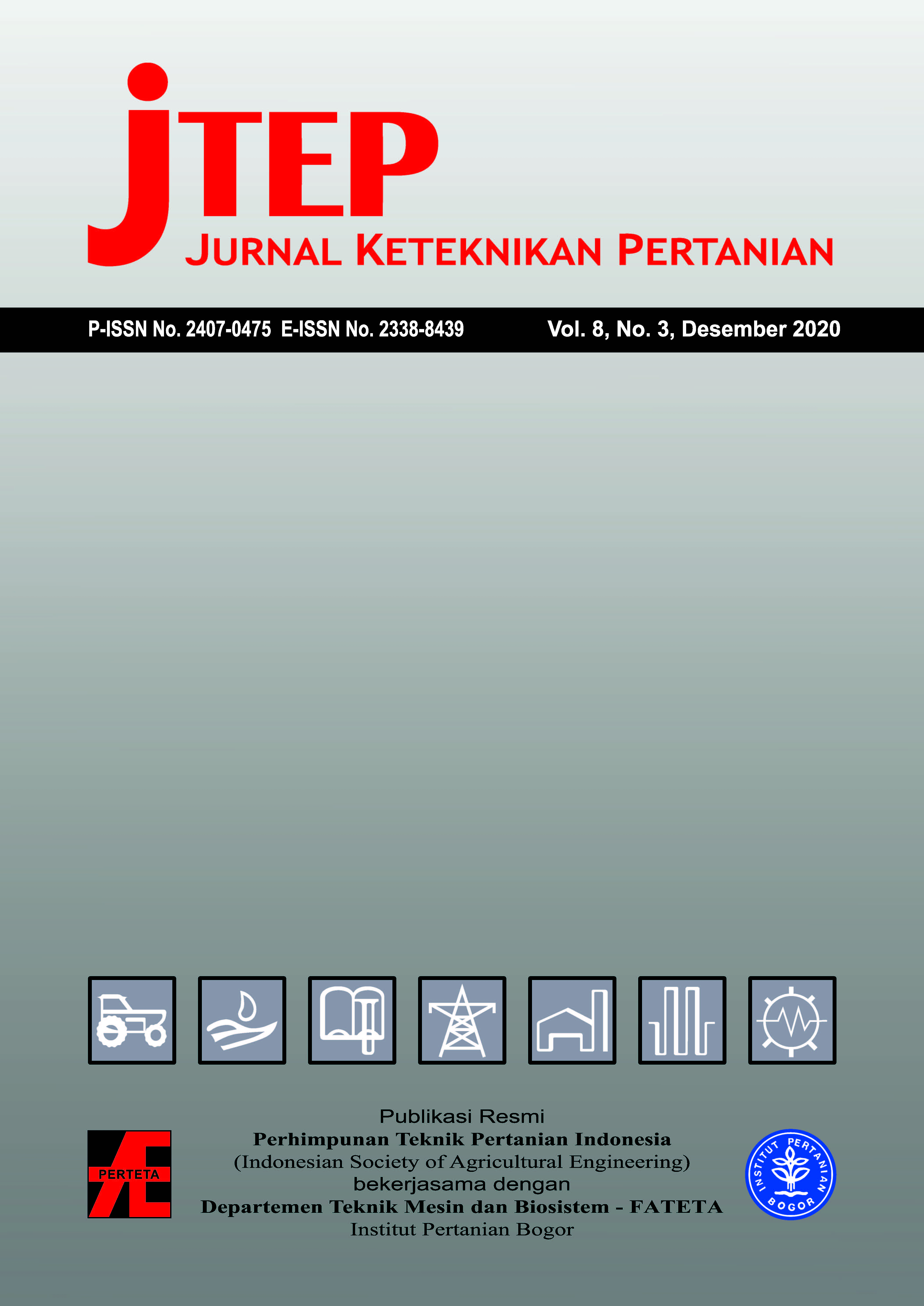Aplikasi Coating Gel Lidah Buaya Untuk Mempertahankan Mutu Buah Alpukat Pada Penyimpanan Suhu Ruang
Abstract
Avocado is a climacteric fruit that still conducting physiological processes after being harvested, so that the fruit can reduce its freshness and increase its damage at room temperature. One treatment to extend the shelf life of avocados is by using an edible coating. Natural edible coating that has the potential to be used as a coating for avocados is aloe vera gel. The objective of this study was to determine an optimum concentration of edible coating made from aloe vera gel for avocado in order to extend its shelf life under room temperature storage. Three level concentrations of aloe vera gel used in this research were 30% (AV30), 50% (AV50), and without coating (Control). The quality parameters analyzed were weight loss, skin water content, percent of decay, hardness, color, and total soluble solids. The results showed that edible aloe vera gel coating significantly affected weight loss, skin water content, percent of decay, hardness, and total soluble solids of avocados. Among the treatments, the research found and recommend that the 50% of aloe vera coating was good enough to extend avocado until 18 days under room temperature storage.
Keywords: Edible coatings, aloe vera gel, avocados, room temperature storage
Authors

This work is licensed under a Creative Commons Attribution 4.0 International License.
Authors submitting manuscripts should understand and agree that copyright of manuscripts of the article shall be assigned/transferred to Jurnal Keteknikan Pertanian. This work is licensed under a Creative Commons Attribution-ShareAlike 4.0 International License (CC BY-SA) where Authors and Readers can copy and redistribute the material in any medium or format, as well as remix, transform, and build upon the material for any purpose, but they must give appropriate credit (cite to the article or content), provide a link to the license, and indicate if changes were made. If you remix, transform, or build upon the material, you must distribute your contributions under the same license as the original.

